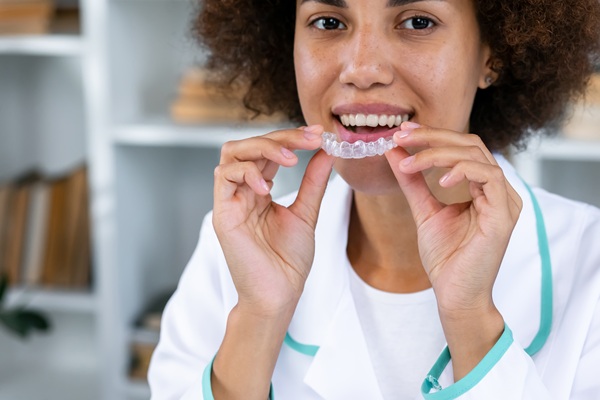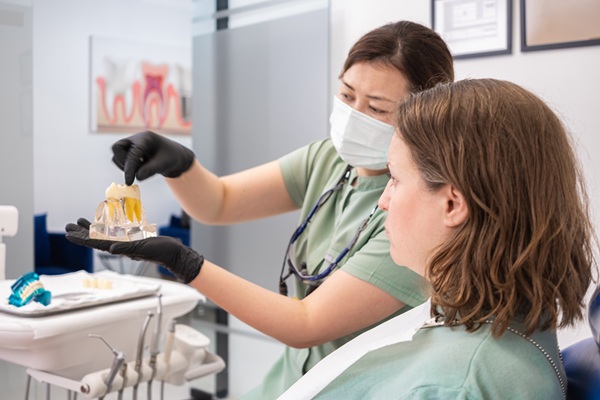Preventive Dentistry Tips to Avoid Cavities

Why is preventive dentistry important?
When it comes to brushing your teeth, some people feel missing a random day or two is not a big deal because their teeth are healthy and are not in danger of falling out. Even though it is true that your teeth will not fall out because you failed to clean them occasionally, failure to practice good oral hygiene increases your chances of having oral health issues that can lead to you losing your teeth.
By practicing preventive dentistry, you reduce your chances of getting cavities, which can lead to tooth decay if left untreated. If you are interested in keeping your teeth and mouth healthy and want to avoid cavities and tooth decay in the future, these tips should help you practice good oral hygiene.
Brush and floss daily
The American Dental Association recommends brushing your teeth at least twice a day, preferably when you wake up and right before you go to sleep. You should also use dental floss on a regular basis to remove the food particles that get stuck in your teeth.
If you eat a snack or a meal and cannot brush your teeth after, rinse your mouth with water or chew a piece of sugar-free gum to reduce the bacteria buildup and the formation of plaque on your teeth.
Visit your dentist regularly
Practicing preventive dentistry requires a visit to your dentist at least twice a year because it allows your dentist to check for signs of oral disease and other health problems. Going to the dentist regularly also improves your chances of avoiding cavities because your dentist will clean your teeth with a fluoride solution that helps prevent cavities.
Drink plenty of tap water
Even though most people consume only bottled water, you should try to drink tap water if you want to practice preventive dentistry because the tap water in most places in the United States contains fluoride. If you are hesitant to drink tap water, there are bottled alternatives that also contain fluoride, but you will have to check the label first to make sure.
Avoid sugary drinks
Drinks with a lot of sugar are bad for your teeth because the bacteria in your mouth feed off the acids, leading to the formation of plaque. If left unchecked, the plaque will harden and turn into tartar, leading to cavities and gum disease.
Stop smoking
Smoking and the use of other tobacco products is bad for your teeth because they stain them, but they are also bad for your oral and general health because the nicotine and chemicals found in these products can lead to serious gum disease and tooth decay.
Conclusion
Practicing preventive dentistry means that you have to watch what you eat and practice good oral hygiene. If you need more tips on how to avoid cavities, ask your dentist how to do so during your next visit.
Request an appointment here: https://dentistofmontville.com or call Montville Smiles at (973) 302-2079 for an appointment in our Montville office.
Check out what others are saying about our services on Yelp: Read our Yelp reviews.
Recent Posts
Invisalign® is a popular teeth straightening treatment option that many general dentists offer. It is the preferred choice because the treatment process is known to be simple, discreet and less involved than that of braces. However, with that, it is also important to note that braces and Invisalign tend to target different problems.Want to learn…
Dental implants are a great option for replacing missing teeth. They can last a lifetime and look and act like your natural teeth. However, many factors determine how many implants you need to replace multiple teeth. While having a dental implant placed in your mouth that looks and acts just like your natural teeth sounds…
Oral injuries that lead to severe bleeding in the mouth count as dental emergencies. Blood clots have a more challenging time forming in the mouth, and deep cuts in the mouth can lead to significant blood loss without the care of an emergency dentist. Waiting up to a few weeks for a regular appointment is…
Are you thinking about getting dental sealants? While this preventive dental treatment is commonly used on children's teeth to prevent the formation of cavities, it can also protect adults' teeth. According to WebMD, dental sealant is a thin plastic coating painted on the chewing surfaces of teeth, usually the back teeth, to prevent tooth decay.Understanding…


